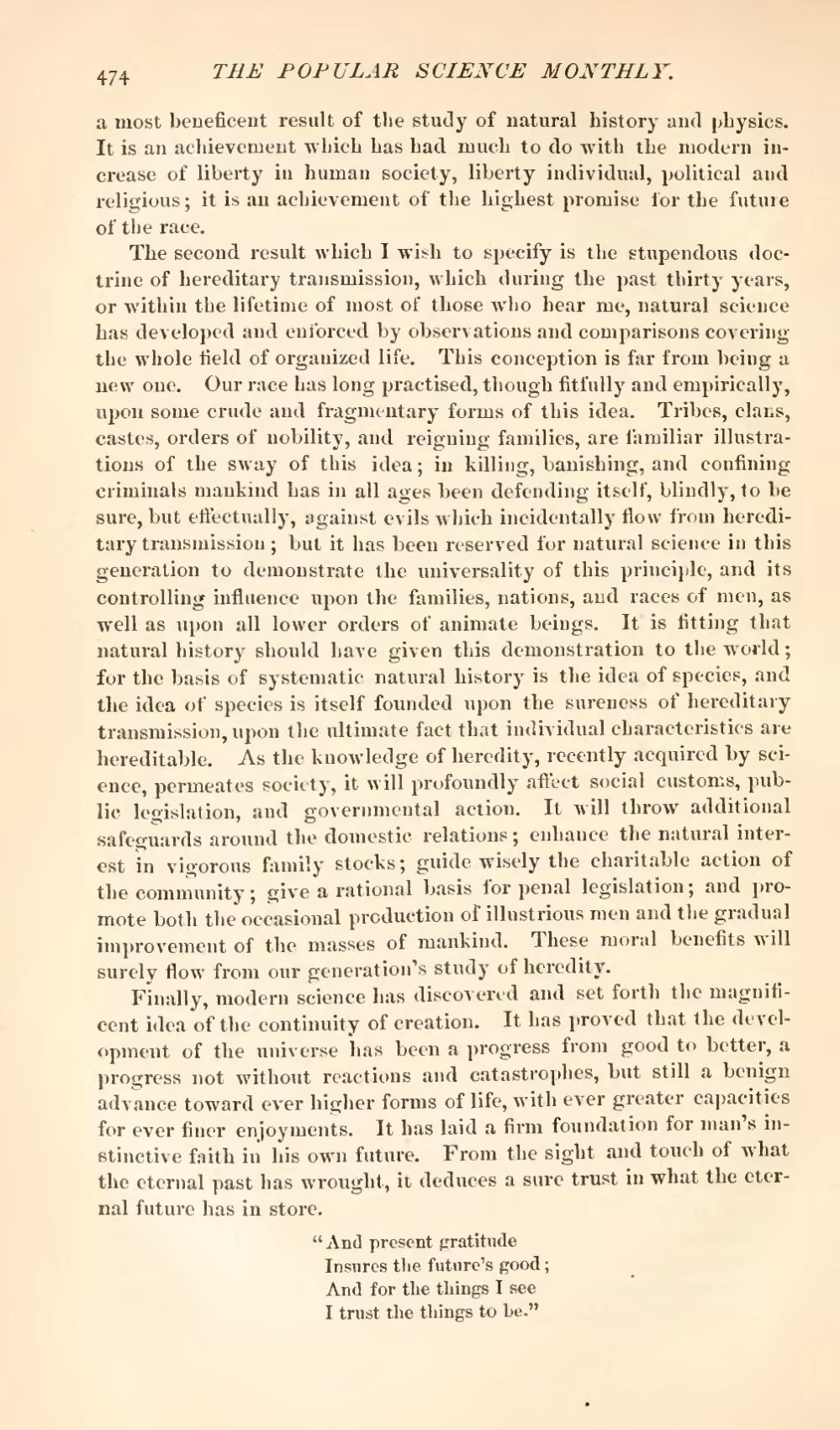a most beneficent result of the study of natural history and physics. It is an achievement which has had much to do with the modern increase of liberty in human society, liberty individual, political and religious; it is an achievement of the highest promise for the future of the race.
The second result which I wish to specify is the stupendous doctrine of hereditary transmission, which during the past thirty years, or within the lifetime of most of those who hear me, natural science has developed and enforced by observations and comparisons covering the whole field of organized life. This conception is far from being a new one. Our race has long practised, though fitfully and empirically, upon some crude and fragmentary forms of this idea. Tribes, clans, castes, orders of nobility, and reigning families, are familiar illustrations of the sway of this idea; in killing, banishing, and confining criminals mankind has in all ages been defending itself, blindly, to be sure, but effectually, against evils which incidentally flow from hereditary transmission; but it has been reserved for natural science in this generation to demonstrate the universality of this principle, and its controlling influence upon the families, nations, and races of men, as well as upon all lower orders of animate beings. It is fitting that natural history should have given this demonstration to the world; for the basis of systematic natural history is the idea of species, and the idea of species is itself founded upon the sureness of hereditary transmission, upon the ultimate fact that individual characteristics are hereditable. As the knowledge of heredity, recently acquired by science, permeates society, it will profoundly affect social customs, public legislation, and governmental action. It will throw additional safeguards around the domestic relations; enhance the natural interest in vigorous family stocks; guide wisely the charitable action of the community; give a rational basis for penal legislation; and promote both the occasional production of illustrious men and the gradual improvement of the masses of mankind. These moral benefits will surely flow from our generation's study of heredity.
Finally, modern science has discovered and set forth the magnificent idea of the continuity of creation. It has proved that the development of the universe has been a progress from good to better, a progress not without reactions and catastrophes, but still a benign advance toward ever higher forms of life, with ever greater capacities for ever finer enjoyments. It has laid a firm foundation for man's instinctive faith in his own future. From the sight and touch of what the eternal past has wrought, it deduces a sure trust in what the eternal future has in store.
"And present gratitude
Insures the future's good;
And for the things I see
I trust the things to be."

